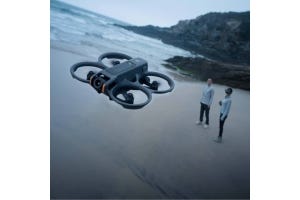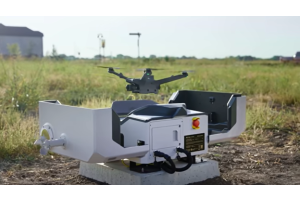
The hits on foreign drone manufacturers just keep coming.
Washington, D.C. – Two senators: Mark Warner (Democrat-Virginia) and Marsha Blackburn (Republican-Tennessee) are teaming up to introduce a new bill that aims to control the number of foreign-made drones in the US. The Stemming The Operation of Pernicious and Illicit (STOP Illicit) Drones Act specifically targets drones manufactured in Russia, China, Iran, Venezuela, North Korea and Cuba. The bipartisan legislation seeks to impose federal funding and operating restrictions on these countries' drone companies.
Read the full bill here.
Protecting Critical Technologies and National Security
Senator Blackburn highlighted the need to safeguard the critical technologies sector against potential vulnerabilities and threats posed by adversarial nations, emphasizing that taxpayer dollars should not fund drones manufactured in regions hostile to the U.S. The STOP Illicit Drones Act would help mitigate the importation of drones from these adversaries, ensuring the safety of the nation and encouraging domestic manufacturing.
Senator Warner underscored the transformative potential of drones in various industries and aspects of society, such as agriculture, emergency services, and deliveries. However, he emphasized the significance of avoiding any promotion of the objectives of adversaries who aim to flood the US market with drones posing a threat to national security.
Key Provisions of the STOP Illicit Drones Act
The legislation encompasses several significant provisions aimed at curbing the use of foreign-produced drones in the United States. These include:
- Blocking federal funding for drones from certain countries: The Federal Aviation Administration (FAA) will be banned from giving money to drone companies in Russia, China, Iran, Venezuela, North Korea and Cuba. This rule applies to FAA programs like the Aviation Workforce Development Program, Aviation Research Grant Program, and the Airport Improvement Project Program.
- Restriction on Procurement and Operation: The FAA would be barred from buying or operating drones made in the listed countries. Exceptions, however, are permitted for activities related to detection or counter-UAS testing, as well as warfare analysis and operations.
- Swapping Foreign Drones: All foreign drones currently used by the FAA have to be changed with drones made in the United States or by allied nations countries within one year.
- Congressional Report: The FAA would be required to send a Congress a report that shows the number of FAA drones that broke the law and how much it will cost to replace them. This report also has to explain the changes FAA did to its operation, procurement and contracting processes to comply with the new law.


Photo by David Henrichs on Unsplash
Growing Concerns Over Chinese-Made Drones
This bill comes after concerns were raised about the security risks associated with Chinese-made drones used by U.S. government agencies. For instance, Senator Marco Rubio expressed worries about drones from Autel Robotics and other Chinese companies being utilized by the U.S. Capitol Police. In a June 02 letter to USCP Chief J. Thomas Manger, he emphasized the national security threat posed by Chinese drones and urged the disbandment of their usage by USCP personnel.
Just in 2 months ago in April, Mike Gallagher and Elise Stefanik, two Republican Representatives, proposed the Countering CCP Drones Act to include DJI in the Federal Communications Commission's Covered List. This would prevent DJI from using U.S. communications infrastructure. According to the lawmakers, DJI, a Chinese-based company, manufactures more than half of drones sold in the U.S. and it is widely used by public safety agencies.
The government has also previously implemented measures to limit the acquisition of Chinese-made drones, including imposing export restrictions on DJI back in 2021.
Such legislations have not come without their share of challenges, as was the case with the Blue UAS standard in Florida, where agencies with DJI drones were left stranded. They are now coordinating to better-navigate the evolving legislative climate.
Ensuring National Security and Domestic Manufacturing
The bipartisan efforts of Senators Blackburn and Warner aim to strengthen national security by limiting the use of drones produced by adversarial nations. By restricting federal funding and procurement, the STOP Illicit Drones Act seeks to ensure that taxpayer dollars are not supporting drone companies from hostile regions. Furthermore, the legislation encourages domestic manufacturing, fostering the growth of the U.S. drone industry.
With the potential for drones to revolutionize various sectors, it becomes imperative to strike a balance between technological advancement and safeguarding national interests. The STOP Illicit Drones Act serves as a step toward achieving that equilibrium, protecting critical technologies, and maintaining the security of the United States.





